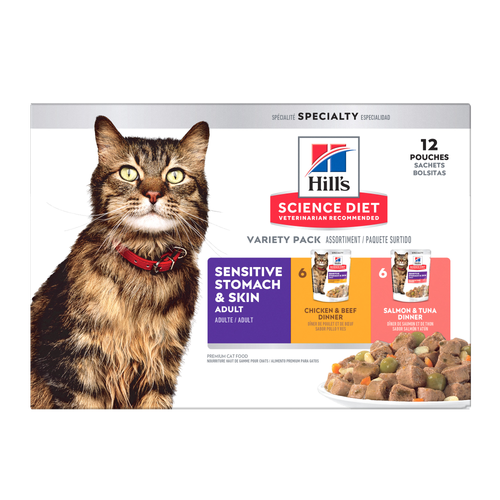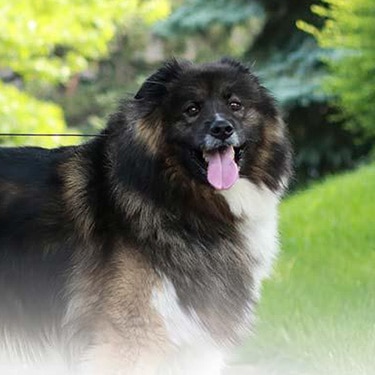
-
Find the right food for your petTake this quiz to see which food may be the best for your furry friend.Find the right food for your petTake this quiz to see which food may be the best for your furry friend.Health CategoryFeatured products
 Adult Light Large Breed Chicken Meal & Barley Recipe Dog Food
Adult Light Large Breed Chicken Meal & Barley Recipe Dog FoodFewer calories for less active large breed dogs
Shop Now Hill's Science Diet Adult Healthy Mobility Large Breed Chicken Meal, Barley & Brown Rice Recipe Dog Food
Hill's Science Diet Adult Healthy Mobility Large Breed Chicken Meal, Barley & Brown Rice Recipe Dog FoodAdvanced nutrition shown to support joint health and improve mobility
Shop Now Adult Large Breed Chicken & Barley Recipe Dog Food
Adult Large Breed Chicken & Barley Recipe Dog FoodSupports healthy joints, lean muscle, and beautiful coat for large breed dogs
Shop NowFeatured products Adult Perfect Digestion Chicken, Barley & Whole Oats Recipe Cat Food
Adult Perfect Digestion Chicken, Barley & Whole Oats Recipe Cat FoodHill's Science Diet's breakthrough nutrition supports ultimate digestive well-being & healthy microbiome
Shop Now Adult Oral Care Chicken & Brown Rice Recipe Cat Food
Adult Oral Care Chicken & Brown Rice Recipe Cat FoodClinically proven kibble technology to reduce plaque & tartar build-up
Shop Now Adult Sensitive Stomach & Skin Pouch Variety 12 Pack Cat Food, Chicken & Beef, Salmon & Tuna
Adult Sensitive Stomach & Skin Pouch Variety 12 Pack Cat Food, Chicken & Beef, Salmon & TunaCarefully made, gourmet daily nutrition. Tasty chunks with Salmon & Tuna in a decadent gravy. Supports digestive health, nourishes skin and promotes a lustrous fur.
Shop Now -
DogCat
- Cat Tips & Articles
-
Health Category
- Weight
- Skin & Food Sensitivities
- Urinary
- Digestive
- Kidney
- Dental
- Serious Illness
-
Life Stage
- Kitten Nutrition
- Adult Nutrition
Featured articles Fun Ideas for Kids and Pets This Summer
Fun Ideas for Kids and Pets This SummerOutdoor summer activities with your dog or cat can be fun for kids, too. Learn how they also teach kids responsibility & creates a bond with their pet.
Read More Cat vs. Dog: Which Is the Best Pet for Me?
Cat vs. Dog: Which Is the Best Pet for Me?Learn about important differences between dogs and cats, such as cost & space considerations. These factors can help you decide which pet is best for you.
Read More Adopting a Pet: What You Need to Know
Adopting a Pet: What You Need to KnowLearn the basics of adopting a pet, including where to begin and common questions you should ask yourself when deciding which kind of pet is best for you.
Read More -


Dog owners sometimes blame a new dog food when their dog immediately throws it back up after eating. The connection seems logical, but other factors could point to a different cause rooted in behavior.
Regurgitation
Regurgitation, or expelling swallowed food through the mouth, can occur if your dog really loves a new food or competes with other pets in your home at mealtime. Here’s what happens: a dog eats so fast that he or she swallows food without chewing and ingests a lot of air, too. Large pieces of food and air in the stomach will likely come back up. If your dog throws up a whole kibble shortly after eating, regurgitation is likely to blame.



Tasty Tips
What to do?
If you suspect your dog is eating too fast and regurgitating, take these steps to reduce the risk.
1. Feed smaller meals more often until you notice a slow down in eating speed.
2. Rather than using a deep dish, place the dog food on a wide, flat surface, like a cookie sheet. This spreads out the kibbles and forces your dog to take more time eating. It also prevents big mouthfuls of food.
3. If your dog continues to regurgitate, you should see your veterinarian.
Transitioning
Transitioning to a new dog food too quickly can also cause your dog to throw up. Mix increasing amounts of the new food with decreasing amounts of the old food over a seven-day period to avoid discomfort.
If your dog is showing signs of discomfort after eating or vomits intensely or constantly, see your veterinarian immediately. It’s always a good idea to consult your vet before changing dog foods.


One of our staff authors prepared this article for you
Related products

Supports healthy joints, lean muscle, and beautiful coat for large breed dogs

Fewer calories for less active large breed dogs

Advanced nutrition shown to support joint health and improve mobility

Fewer calories for less active dogs
Related articles

Learn how to stop your dog from begging at the dinner table, and understand how it can help contribute to his health.

A little exercise can make a big difference. Not only will it enhance your pet’s health, but it will beef up your relationship as well.

Though it may seem like your four-legged friend loves nothing more than to nap on the couch, dogs need regular exercise to stay healthy just like people do.

Learn about choosing the right dog food to help ensure your mature older dog will receive the correct balance of nutrition.

Put your dog on a diet without them knowing
Our low calorie formula helps you control your dog's weight. It's packed with high-quality protein for building lean muscles, and made with purposeful ingredients for a flavorful, nutritious meal. Clinically proven antioxidants, Vitamin C+E, help promote a healthy immune system.
Put your dog on a diet without them knowing
Our low calorie formula helps you control your dog's weight. It's packed with high-quality protein for building lean muscles, and made with purposeful ingredients for a flavorful, nutritious meal. Clinically proven antioxidants, Vitamin C+E, help promote a healthy immune system.

